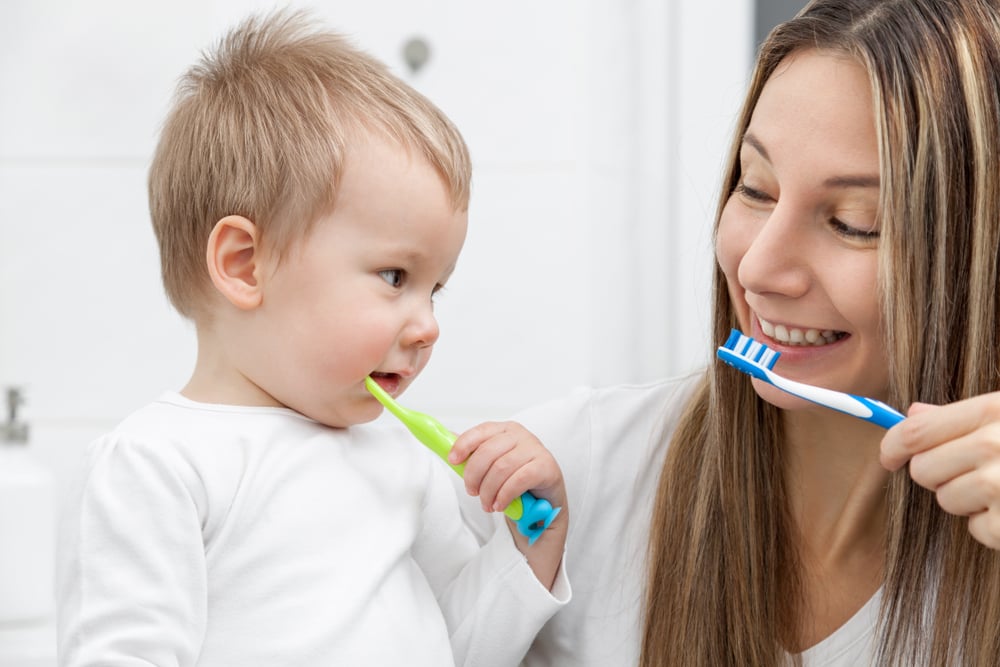I regularly take my children to the dentist and I am lucky that they don’t seem to have any worries or concerns with going. In fact, my children love going to the dentist and when they were little looked forward to sitting on the big chair and selecting their favourite sticker. Sadly this is not the norm for a growing number of children in England.

Recently, there has been a growing number of parents who are struggling to get dental care for their children in England. Data from a freedom of information request from the Liberal Democrats found that some children were waiting up to 18 months for dental procedures, principally tooth extractions. 27,000 children were on the waiting lists, many who have special needs, are homeless or “at risk”. But there is also evidence from the findings that showed there was a dental postcode lottery, where some dental services were struggling with staff shortages and unable to cope with capacity.
Poor dental hygiene is something I have sadly seen as a major indicator of a family in need of support when I was a primary school teacher. I have worked in some of the most deprived parts of London and know that health inequalities usually manifest through the oral health of our children.
The first oral health survey published since the pandemic lockdown showed that 1 in 4 children suffered tooth decay before they started school. This is something I witnessed as a teacher, and my friends teaching nursery at the time also reported that the health of children they teach had dramatically dropped. The amount of children, particularly in London, that suffer unnecessary pain due to poor dental hygiene is staggering, but it is also avoidable.

It’s been clear for decades that inequality still manifests throughout our society, and prominently when it comes to public health in the UK. There are very few sectors that make this more apparent than oral health.
Adults working in routine and manual jobs were five times as likely to have experienced tooth loss than those working managerial and professional roles1. The problem also manifests itself in the capital’s children: only 41% of which were seen by a dentist last year, the lowest rate of all regions in England2, and relative health inequalities in five year-olds have remained almost entirely unchanged since 20083.
But I probably don’t need to tell you, every month there seems to be yet another horror story haunting the headlines. The most recent one being a BBC report which warned that children were now waiting over a year in pain for NHS tooth removal4. This one in particular makes for disturbing reading. The idea of our children being in pain strikes fear into the heart of any parent, and even more so, the idea that we are failing our children.
It’s clear that we need to start taking issues in NHS dentistry seriously if we want to save our children from this pain. It’s clear that there is a crisis of access, and one that is disproportionately affecting those from lower income backgrounds. This makes the crisis just another manifestation of wide-spread and lingering health inequalities which continue to plague London and the UK as a whole.
The Government and the Mayor of London need to step up.
In February of this year, I called on the Mayor to write directly to Integrated Care Boards in London urging them to ensure they involve Local Dental Committees in future decision-making. Thankfully, he agreed to have his health advisor raise this issue when he meets with ICS chairs in the coming months5.
The Mayor also has several programmes through his Health Inequalities Strategy which aim to tackle these issues such as the Water Only Schools Programme, which encourages young Londoners to choose water over sugary drinks, and Healthy Early Years Programme, which enables children and families to learn about good oral health6. Though it seems to me that the Mayor is genuinely concerned about health inequality amongst the capitals children, he doesn’t seem willing to commit the funds needed to really improve outreach, and is happy to pass the blame onto the government.
Late last year, the government announced a new package of measures designed to improve access, which included dentists receiving fairer payments for complex care, requiring them to update the NHS website regularly to make clear where practices have openings, and ensuring the system better supports dentists. It can’t be said that any of these measures seem fit for the purpose of dealing with the recruitment and retention crisis that lies at the heart of the crisis.
So, the situation we find ourselves in, is one in which neither the government, nor the Mayor of London seem to want to take seriously. It also occurs to me that the crisis in access to dental services is just another echo of the wider crisis that our modern NHS finds itself in.
The question is, how long are we willing to accept such inadequate care for our children, who look to us to protect them, and give them the best chance in life?
There’s a few things that need to happen in order for us to do this:
Firstly, we need complete reform of the NHS dental services contract, and we must increase funding to ensure patient demand is met and dentists are incentivised to take on NHS patients.
Next, we should increase the number of dentist training places in London and across the UK, and continue to recognise EU trained dentists’ qualifications. We should also introduce proper workforce planning for health and social care by law, including projections for dentists and dental staff.
In the short term, we need an emergency scheme to ensure children, pregnant women and young mothers have access to their free check-ups on time. We should also encourage supervised tooth brushing training for children in early years settings, such as nurseries. More support for new parents, with guidance on healthcare including schemes like Sure Start, which sadly have been reduced in many boroughs.
Finally, we should remove the VAT on children’s toothbrushes and children’s toothpaste.
Protecting and safeguarding the nation’s health, including oral health, and combatting persistent health inequalities is a matter of will. Are we willing to put the health and comfort of our children first? Are we willing to make it a priority? I sincerely hope so.
I am lucky that my children have not had many issues with their teeth yet but I do worry about a time when they might and whether we too will have to wait for urgent care. No parent wants to see their children suffer.
And right now, NHS dentistry is suffering. Without some decisive action there may be unavoidable pain further down the line.
- Inequalities in Oral Health in England. Public Health England, 19 March 2021. Available online: https://www.gov.uk/government/publications/inequalities-in-oral-health-in-england ↩︎
- NHS Dental Statistics: 2021-22 – Annex 2 – Geographical Breakdown of dental data. NHS Digital, 25 August 2022. Available online: https://digital.nhs.uk/data-and-information/publications/statistical/nhs-dental-statistics/2021-22-annual-report ↩︎
- Inequalities in Oral Health in England. Public Health England, 2021. Available online: https://assets.publishing.service.gov.uk/government/uploads/system/uploads/attachment_data/file/970380/Inequalities_in_oral_health_in_England.pdf ↩︎
- Children Waiting over a year in pain for NHS tooth removal. BBC, 19 July 2023. Available online: https://www.bbc.co.uk/news/health-66095984 ↩︎
- Dentistry (1) Question 2023/0618. Question to the Mayor of London, 23 February 2023. Available online: https://www.london.gov.uk/who-we-are/what-london-assembly-does/questions-mayor/find-an-answer/dentistry-1 ↩︎
- Dentistry (2) Question 2023/0619. Question to the Mayor of London 23 February 2023. Available online: https://www.london.gov.uk/who-we-are/what-london-assembly-does/questions-mayor/find-an-answer/dentistry-2 ↩︎

London Assembly Member (Liberal Democrat)

